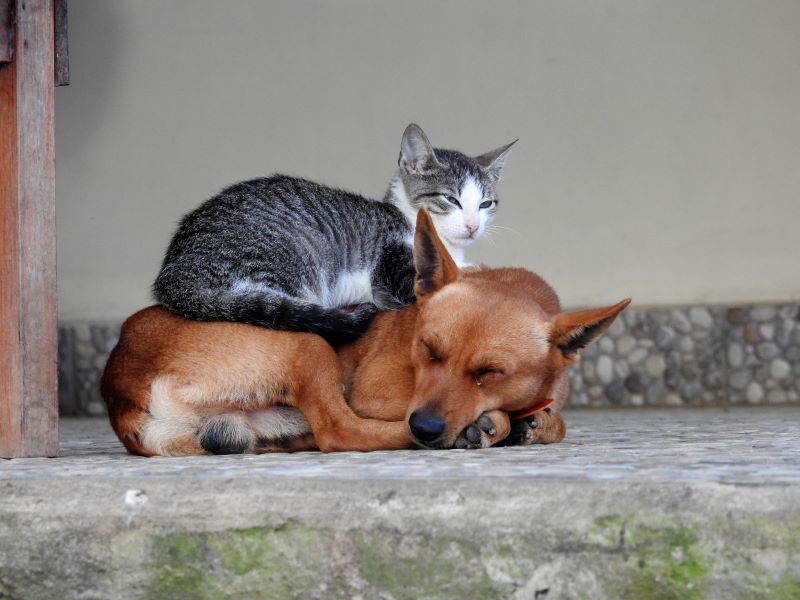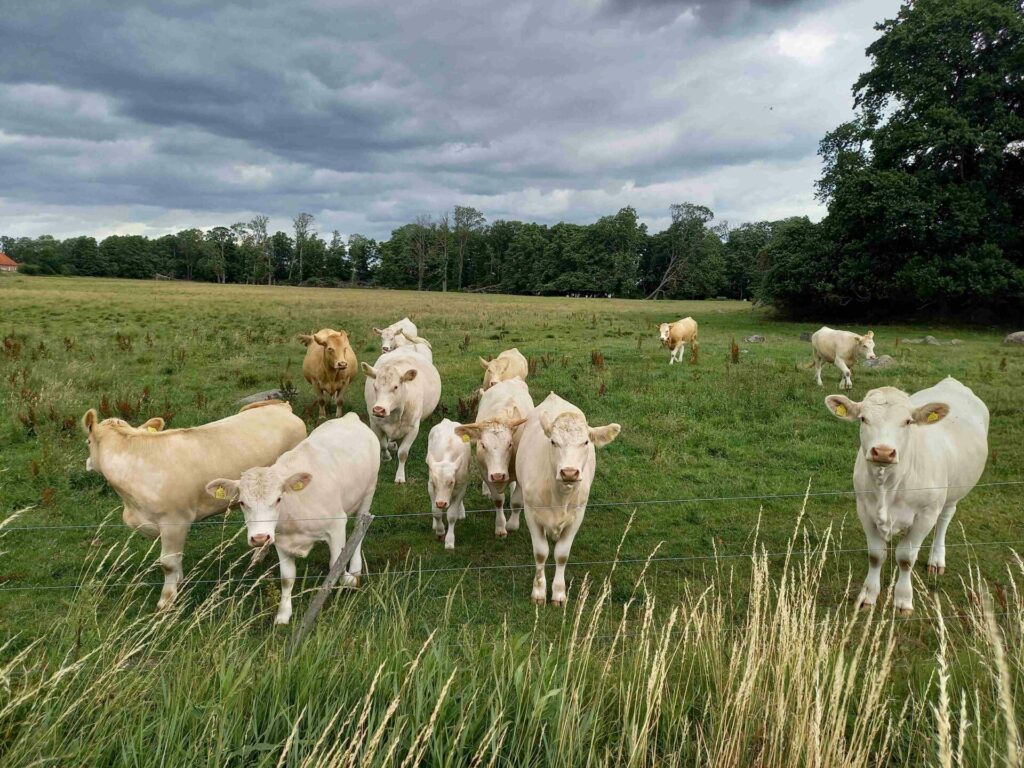For the first time in 20 years, the European Commission proposed on Thursday (7 December) an animal welfare package to improve the rules in three different areas but it still falls short of the more ambitious revision of the outdated legislation that it had committed to propose.
As previously reported, the Commission backtracked on its commitment following internal differences and external political pressure and lobbying.
Animal welfare was conspicuously absent in Commission President Ursula von der Leyen’s State of Union Speech to the European Parliament on 13 September. Executive Vice-President Maroš Šefčovič deprioritized animal welfare when he was questioned by the European Parliament on 3 October after the European Commission had nominated him in charge of the European Green Deal.
It might have made a difference if there would have been a European Commissioner with responsibility for animal welfare already now, as proposed in a recent petition signed by 310,000 citizens. However, the current Commission lacked the political will to appoint one before the end of its term.
The downsized package was presented by Maroš Šefčovič, Executive Vice-President for European Green Deal, and Stella Kyriakides, Commissioner for Health and Food Safety, both of them, as they said, proud owners of pets. It includes new rules on the welfare and traceability of dogs and cats, an overhaul of the rules for animals in transport, and steps to address the issue of killing animals for fur production.
Behind the three proposals is a strong public opinion for animal welfare, the Commission acknowledged. “More than 80% of EU citizens want better protection of animals,” said Vice-President Sefcovic. “The way we treat nature, including animals, says a lot about what kind of humans we are and I am pleased that today we are making progress for animal welfare.”
“Animal welfare is an issue which EU citizens care deeply about and working to improve it has been our political priority since day one,” Commissioner Kyriakides added. “Nearly half of Europe’s households own a dog or a cat, which shows the significance of our actions today. Animal welfare is not only essential for animal health and wellbeing but also for a humane, healthy and sustainable society.”
Live animal transport, exports not banned
This part of the package includes a number of new rules to better protect animals during transport. Travel times will be shortened. During long journeys, animals must be unloaded for periods of rest, feeding and watering. Special rules will apply to animals for slaughter, and to vulnerable animals such as unweaned calves and pregnant animals.
Allowances to ensure minimum space for the different animals will be increased and adapted to each species. Transport in extreme temperatures will be subject to strict conditions, including limiting transportation solely to night-time when temperatures exceed 30 degrees. The EU will also make the maximum use of digital tools to facilitate the enforcement of transport rules.
Export of live animals to non-EU countries will still be allowed but the rules will be tightened. The Commission proposes better controls in third countries to meet equivalent standards as those found in the EU.
But this is not enough for animal welfare NGOs that see the proposal as a missed opportunity. According them, the new provisions are insufficient to prevent some of the worst cruelty endured by animals during transport and will not significantly decrease suffering. A new report released by one of the NGOs exposed details about the suffering in long-distance travel.
“The draft EU animal transport law shows some desire to improve EU animal protection rules, yet it manifestly lacks ambition,” commented Olga Kikou, Head of Compassion in World Farming EU. “The Commission is not proposing to ban live exports, which is what other legislators have moved towards – with restrictions already in other countries.”
According to Kyriakides, the transport proposal on live animal transport is balanced and robust and takes into account the situation of the companies involved in the trade.
A ban on export would not sufficiently achieve EU’s objective of better protection, she said at the press conference. “Third countries would likely import animals from other countries with lower animal welfare standards, resulting also in longer journeys. It is more efficient to improve the conditions for road and sea transports.”
Companion animals, need for more measures
This proposal is overall welcomed by animal welfare NGOs and by most pet owners. “FOUR PAWS’ presence in Brussels was first established in 2007 to achieve exactly this,’ commented Georgia Diamantopoulou, Companion Animal Policy Coordinator at FOUR PAWS. “This is the realization of a mission for us.”

Pets, credit: Eurogroup for Animals
Around 44% of households in the EU have a pet animal. Trade in dogs and cats has grown considerably in recent years, with an annual value of €1.3 billion. A new report published by the Commission denounces the extent of the illegal trade in dogs and cats, as well as the current loopholes that allow it to happen.
The new rules will establish a level playing field for the welfare of dogs and cats that are bred or kept in breeding establishments (rather "puppy factories", in Kyriakides' words,) in pet shops as well as in shelters. Strict traceability requirements, together with automated checks for online sales, will help authorities control the breeding and trade of dogs and cats. Buyers will also be able to check their identification and registration.
It is positive to see that these requirements would also apply to imports, Eurogroup for Animals commented, but there is still room for improvement to ensure tighter measures for safer and more secure sales of cats and dog online it says. An estimated 438,000 dogs and 80 000 cats are offered at any given time online, with fraud still rampant.
The proposal does also fail to address other important measures, such as a ban of sale of cats and dogs in pet shops, the abuse of artificial insemination, and sufficient actions to control extreme breeding. The need for more measures is highlighted in its own report on the illegal pet trade which also was published last week.
‘Fur Free Europe', pending scientific opinion
The least mature proposal was the Commission’s response to the European Citizens' Initiative (ECI) “Fur Free Europe''. It is one of the most successful Initiatives, with over 1,5 million valid signatures in 18 EU member states after one year of campaigning which ended last June. 7 of the 10 successful ECIs have been dedicated to animal welfare issues.
“Fur Free Europe” calls on the EU to ban fur farming and the placement of farmed fur products on the market once and for all. It also raises important issues regarding the protection of human, animal and environmental health, which the Commission will assess following its ‘One Health approach’.
Commissioner Kyriakides mentioned that several member states already have implemented a ban. In fact, to date a majority of countries have totally or partially banned fur farming, sometimes with phasing-out periods, but apparently it was not possible to reach consensus. The issue is of economic importance in some countries, she admitted.
The Commission has therefore tasked the European Food Safety Authority (EFSA) to provide a scientific opinion on the welfare of animals farmed for fur. Building further on this scientific input, and on an assessment of economic and social impacts, the Commission will then communicate on the most appropriate action.
Animal welfare Eurogroup for Animals commented that the request for an EFSA opinion comes despite the fact that there is already a vast body of evidence that concludes that the housing system in fur farms cannot under any circumstances meet the needs of species kept and killed for fur.
Moreover, the mentioned EFSA mandate appears focused on the four main species kept and killed on EU fur farms: mink, foxes, raccoon dogs and chinchillas, while the ECI Fur Free Europe calls for a ban on keeping and killing all animals only or mainly for the purpose of their fur, regardless of the species.
"It is disappointing that the European Commission failed to take a final decision today, while millions of animals keep suffering while this horrendous practice continues to be legitimate in a ‘progressive’ Europe,” commented Reineke Hameleers, CEO, Eurogroup for Animals. “The welfare of animals on fur farms cannot be improved, and the only option is a full ban.”
Next steps
The first two legislative proposals will be submitted to the European Parliament and the Council. As regards the ECI on a ban on fur farming, EFSA will begin the scientific assessment and deliver its scientific opinion by March 2025.
According to the Commission, the whole package is proof of good progress so far in improving animal welfare rules and marks a milestone for animal welfare in the EU. “We cannot do everything in 4 – 5 years’ time. Despite difficult geopolitical and economic conditions, we developed these proposals in time,” the Vice-President said.
It is complex legislation which requires transition periods, in particular as regards the European Citizens Initiative 'End the Cage Age' , according to Commissioner Kyriakides. The Commission says that there is a need to reach consensus on the remaining animal welfare files. The preparatory work continues and will include more consultations and a ‘strategic dialogue’ next year on agriculture with all stakeholders.
M. Apelblat
The Brussels Times

